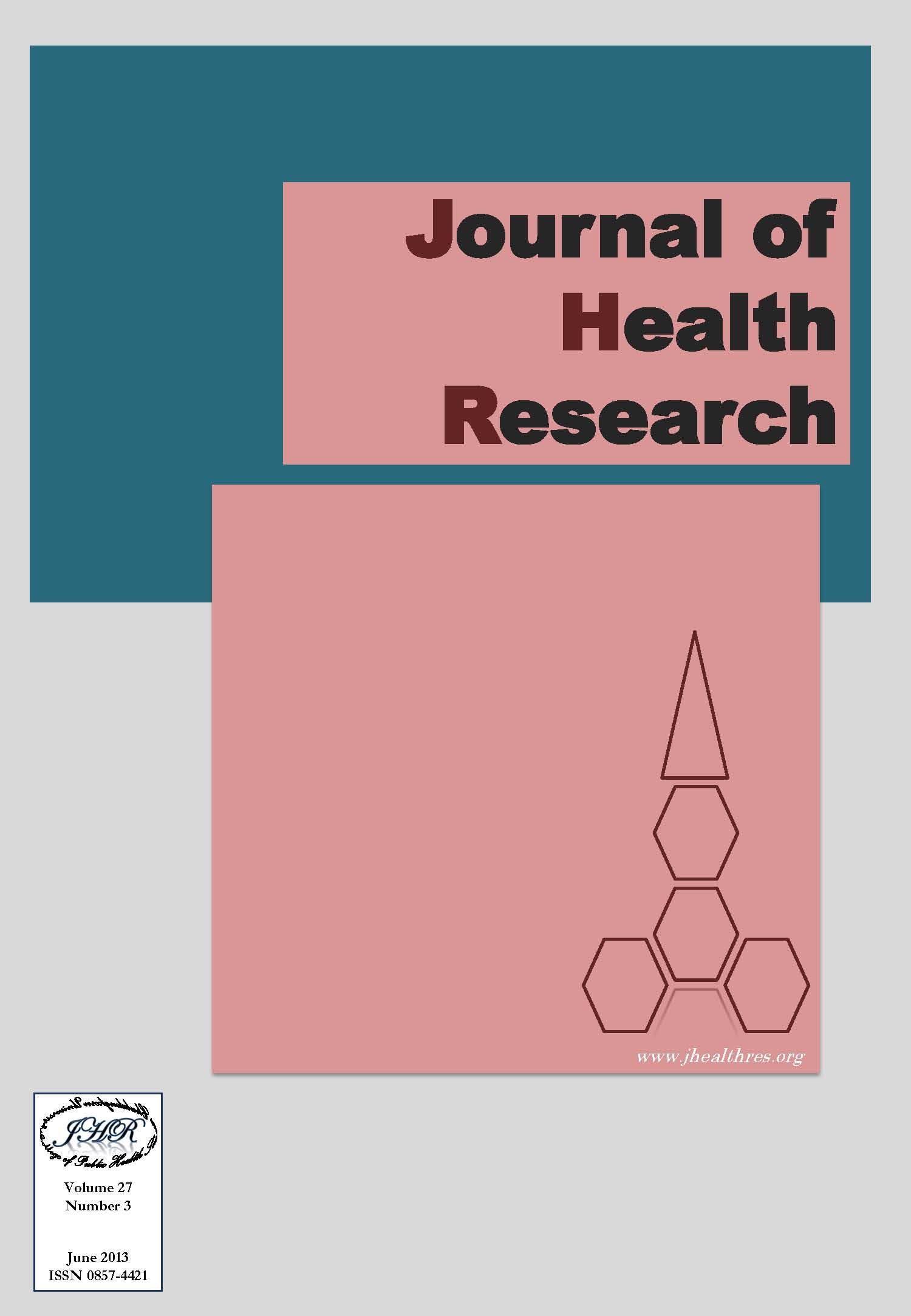Health Risk Perception of Occupational Hazards among Rice Farmers in Nakhon Nayok Province, Thailand
Keywords:
Health risk perception, Occupational hazards, Rice farmers, ThailandAbstract
Rice farmers in Thailand poses to unacceptable levels of occupational risks. Understanding of health risk perception to which rice farmers are exposed is important to preventive health. The study objectives were to investigate occupational risk perception and factors affecting occupational risk perception among rice farmers in Nakhon Nayok province, Thailand. A cross-sectional study was carried out in two communities in Nakhon Nayok province, Thailand. Multistage random sampling was employed, selected one person per each rice farmer household. Data collected from 145 rice farmers using a structured face - to - face interview questionnaire. Rice farmers were interviewed to evaluate 36 items in terms of the potential health risks of occupational hazards in four sides: equipment use, pesticide use, ergonomics, and working condition. Analysis of the items, on a Likert scale from 0 (no risk) to 10 (high risk), showed that rice farmers perceived health risk of occupational hazards on moderate level (= 6.90). The pesticide risk perception was high level (= 8.07), ranking it as the first of health risk perception. The health risk perception of equipment use, ergonomics, and working condition were also moderate level (= 6.85, 6.19, and 6.54, respectively). The result from simple linear regression analysis reveals that two variables affect health risk perception at the 0.05 significance level. Variables that were negatively influence occupational health risk perception included length of current occupation and farm size. Understanding of potential health risk perception is a first step in developing program to minimize occupational hazards. This study suggested that the different levels of health risk perception of each hazard should be integrated to intervention program and risk management strategies.







